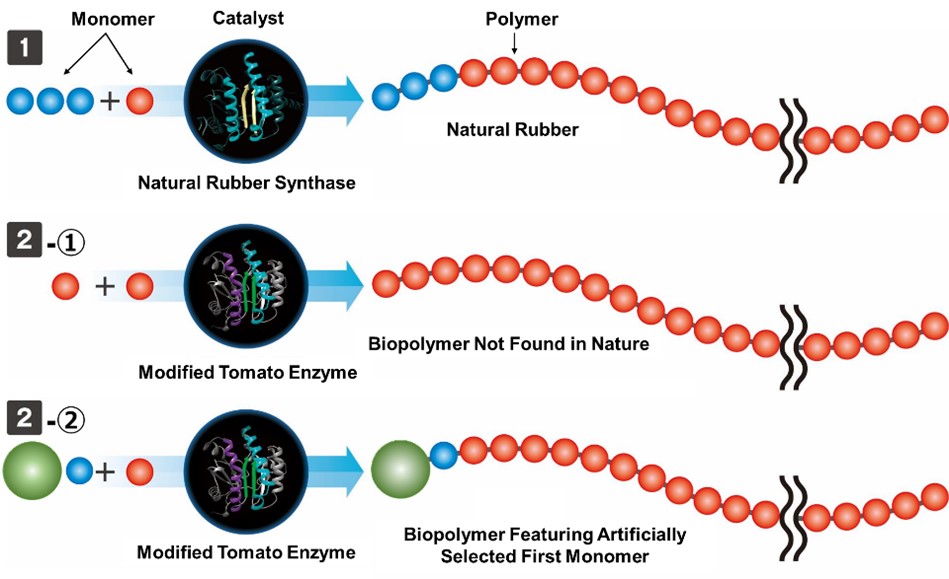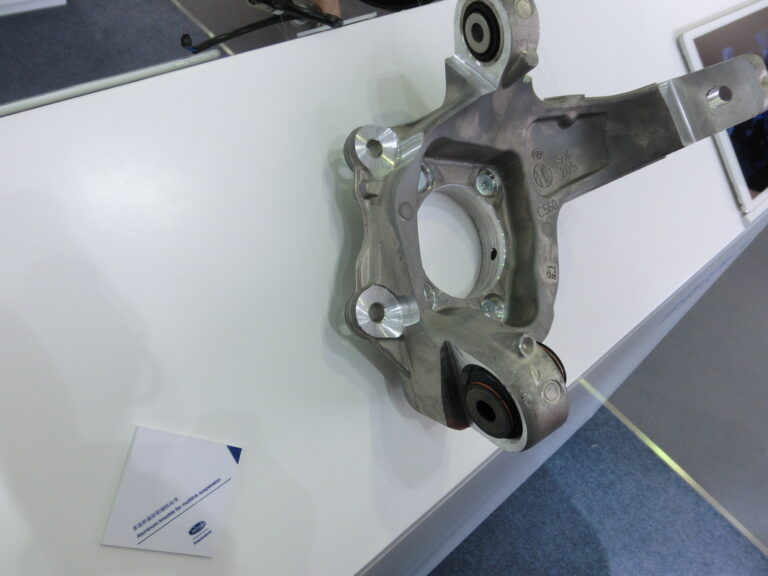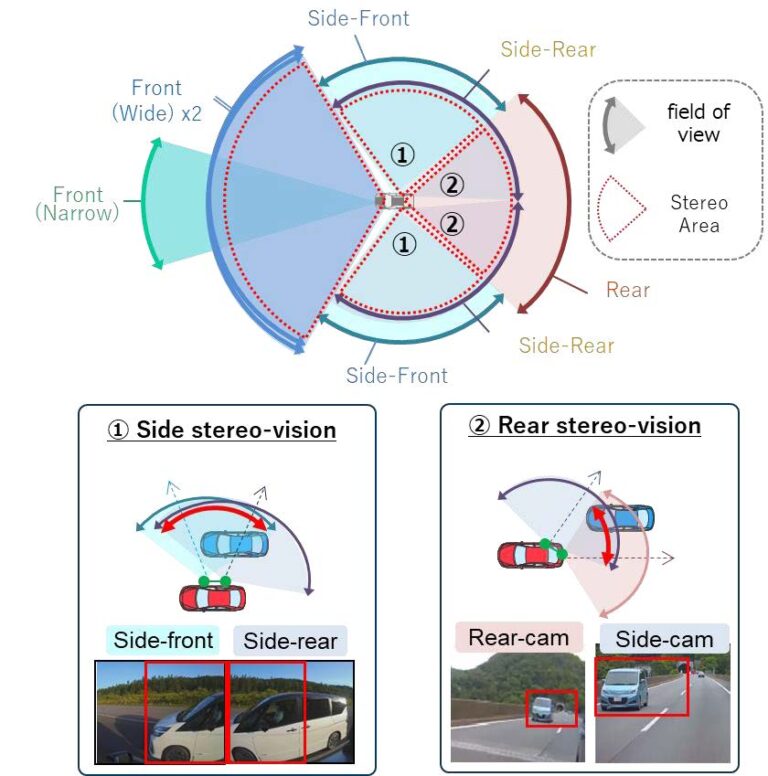
Our research team had previously succeeded in synthesizing a biopolymer not found in nature by first identifying the segment of natural rubber synthase that plays a key role in determining polymer chain lengths and then replacing this segment with a similar segment of a specially modified enzyme derived from tomatoes.
Having since furthered our research on modified tomato enzymes, we recently discovered that the use of modified tomato enzymes weakens initial monomer selectivity, which in turn allows for synthesis starting from monomers other than the initial monomers typically involved in the initiation of polymerization. In addition, by taking advantage of this newfound characteristic, we have now succeeded in synthesizing entirely new biopolymers incorporating initial monomers that we have selected at will.

❶ Normal Synthesis of Natural Rubber ❷-① By using the modified enzyme as a catalyst, we succeeded in synthesizing a biopolymer that, while having a structure unlike natural rubber, nevertheless features a chain length that is comparable to natural rubber. ❷-② Next, we succeeded in synthesizing new biopolymers featuring the initial monomers that we selected.




